Concentration
All information about "Concentration" and the related magazine articles can be found here.
Our articles are written clearly and link to scientific studies where relevant. This is how we meet our own standards: we regularly deliver new, high-quality content for you—free of charge, no sign-up required, with the highest possible benefit to you.

L-ornithine: your amino plus
The silent manager of your liver
Sometimes your body feels heavier than it should and you just don't feel as fresh as you could be. Often, your liver needs gentle support. Find out how L-ornithine supports natural cleansing processes and how you can bring a breath of fresh air from within.

Iron deficiency anemia
Why iron is so important for your body
Have you ever wondered why your body sometimes feels more tired than the day actually warrants? Often, low iron stores can be the reason for your low energy levels. We'll show you how to replenish your reserves.

Clarity & focus with L-tyrosine
Natural support for dopamine drive, stress resistance, and mental energy
Short winter days and mental fatigue can challenge your focus. L-tyrosine is an amino acid that is involved in the formation of dopamine and can support concentration, drive, and mood in everyday life.

Start January off right with taurine
Bring more energy into the new year with small rituals and taurine
After the intense holiday season, everyday life often feels a bit sluggish: sleep patterns, energy levels, and routines need time to get back into balance. With conscious breaks, gentle self-care, and taurine as a complementary part of a mindful routine, the start of the year can be clearer and more focused.

Christmas shopping with serenity — Rhodiola rosea
Relaxed through the Christmas rush with Rhodiola rosea
Whether it's Christmas shopping, Advent preparations, or festive gatherings — the pre-Christmas period can be hectic. Rhodiola rosea can gently support you in taking small breaks more consciously and bringing serenity into your everyday life.

Mental balance with SAMe
Enjoy winter trips and long car journeys with peace of mind
Does your mood quickly drain during the dark months? Whether it's a long road trip or a gray everyday life: S-adenosylmethionine (SAMe) can support the metabolism of neurotransmitters and provide more balance.

D-mannose
Gentle support for your bladder
When cold weather and long periods of sitting become a burden, you need mild protection. Learn how the simple sugar D-mannose binds E. coli bacteria and can support your healthy lifestyle every day.

Calm stomach in the office
Your path to inner balance through a healthy gut
Hectic lifestyles and stress have a direct impact on the stomach. Discover why your gut flora is your most important center for well-being. With lactic acid bacteria and small, conscious routines, you can promote your gut health in the long term.

Keep a clear head despite the stress of bargain hunting
The B complex keeps your energy and nerves stable
Hunting for deals, meeting deadlines, coping with everyday life—it can really drain your batteries. The B complex is like a calming influence that carries you through the final sprint of November with energy and concentration.
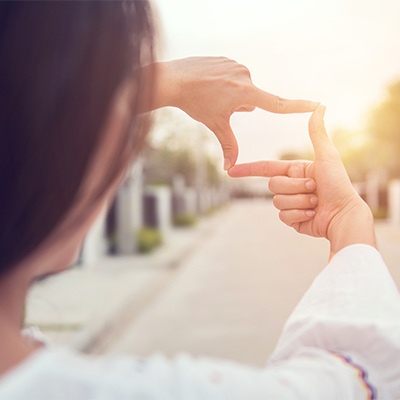
Focus instead of brain fog
Get through your day with acetyl-L-carnitine
Keep a clear head despite a busy schedule! Stay in the flow, stay calm, and get through the day—with acetyl-L-carnitine backing you up. Find out more here!
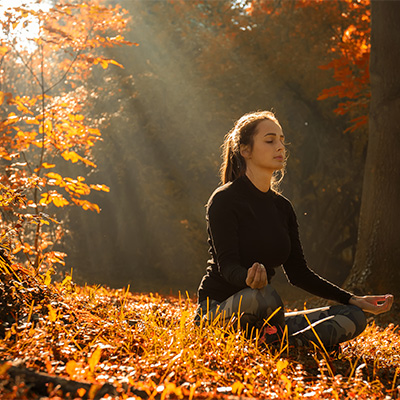
Your silent DJ for everyday life
Coenzyme Q10 – energy in the background, balance in the foreground
Sometimes you don't need a loud drive, but a reliable foundation. Q10 acts like a quiet pacemaker that harmoniously organizes your inner energy. This creates a flow that carries you relaxed through everyday life.

Time for a cell reset?
Cell care with a conscious mind: A clear autumn with spermidine
Between sunscreen residue and the hustle and bustle of everyday life, the need for order is quietly making itself known. This is exactly where Spermidin comes in - for all those who want to reorganize their inner life and get started with fresh energy.
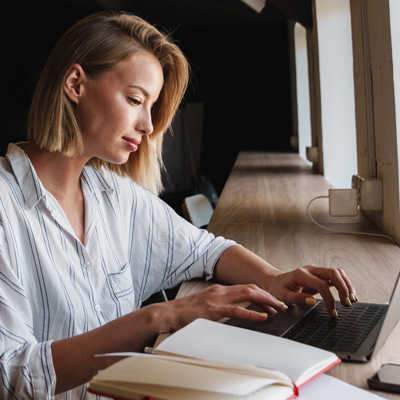
Clarity of thought meets plant power
With ginkgo, ginseng & bacopa naturally through everyday life
When thoughts are still in the hammock but the calendar is already drumming away, gentle structure is required. Get to know three herbal classics that balance concentration and calm - without any caffeine.

Awake in the moment, focused through long summer days with caffeine
Your kick for concentration and joie de vivre
Do you dream of experiencing the endless summer days with full presence and a clear head instead of fighting fatigue? Caffeine can be your natural ally to sharpen your focus and enjoy every ray of sunshine, every adventure with awareness and energy. Discover here how to make your summer moments more alert!

Your rest compass for the summer: Naturally in balance with saffron.
Gentle support from nature for mental serenity and your well-being
Does your inner rhythm sometimes falter in the hustle and bustle of everyday life and does your serenity wane? With saffron, nature offers a valued way to harmonize the carousel of thoughts and cultivate your inner center. Discover here how the red gold can lead you back to new balance and lightness.

Summer, sun, full concentration!
How phosphatidylserine and omega-3 can boost your concentration
The sun is shining but your concentration is waning? Discover how phosphatidylserine and omega-3 fatty acids can naturally boost your mental performance.
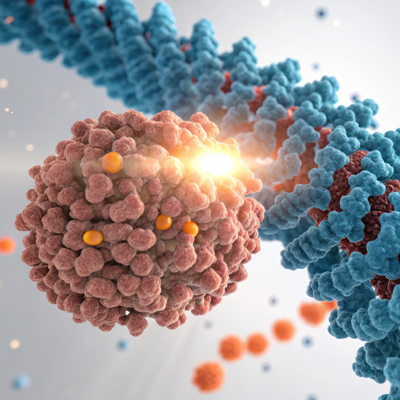
New cell energy with B vitamins, NADH and alpha lipoic acid
NADH, alpha lipoic acid and B vitamins play a central role in human metabolism for energy, concentration and cell protection.
Discover how these nutrients support the body against exhaustion, oxidative stress and loss of performance - for more vitality and mental strength in everyday life!
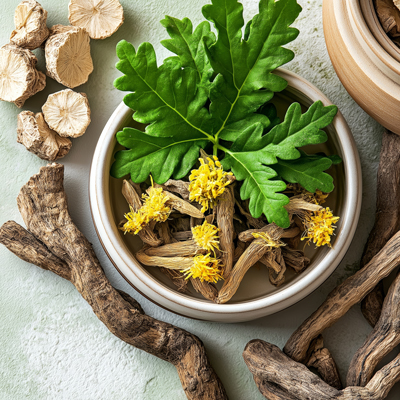
Building inner strength - more relaxed through spring
Plant adaptogens for more balance, energy and mental freshness
Spring is the perfect time to recharge your batteries and do something good for yourself. Rhodiola and cordyceps provide natural and effective support. Find out more here!

Clear head, full focus - with ginseng & ginkgo
More concentration, less stress: Natural support for everyday life
Spring brings fresh energy - but sometimes your head feels foggy rather than clear? Ginseng and ginkgo are proven plants that can help boost focus and mental performance. Whether for learning, at work or simply for more mental freshness - discover how this power combination can take your concentration to a new level!

Iron deficiency? How iron tablets support your vitality
In the cold season, a sufficient iron level is particularly important for energy, blood formation and well-being.
Find out which iron supplements optimally support the body, what you should pay attention to when taking them and how you can specifically prevent iron deficiency. For more strength and vitality in winter!

More oxygen, more energy: Iron and vitamin C as a spring turbo
Are you already feeling the spring, but not yet at full power?
Maybe your body is missing just the right combination of iron and vitamin C! Find out why these two nutrients can increase your blood oxygen saturation - and how you can regain your vitality in no time at all. Leave fatigue behind and start the warm season with fresh energy!

D-Ribose - a natural power up
From the muscles to the heart: D-ribose is of great importance for our health and performance. As a component of all human cells, it is essential for the body's energy supply and regeneration. Health-conscious people and athletes therefore rely on this natural option to support their vitality and their cells. Find out more about D-ribose here now!

How creatine affects fitness
Creatine is primarily known for its effect on muscle building - but it plays a far more versatile role in the human body. We have summarised everything you need to know about this special substance for you in this article.

Guarana - a good coffee alternative?
Is guarana a real alternative to your morning cup of coffee? The extract from the superfruit from the tropics is becoming increasingly popular as an additive for drinks and as a supplement.
Concentration: These tips will help you to focus your attention.
In our fast-paced, digital world, the ability to concentrate is becoming increasingly important. Whether at work, at university or in everyday life – those who stay focused stay one step ahead. But what exactly is concentration? How can we increase it and what can help with concentration problems? We get to the bottom of these and other questions on the subject here and provide you with valuable tips for better concentration.
What is concentration and why is it so important?
Concentration is the ability to focus our attention on a specific task or thought and to block out distractions. It enables us to work, learn and solve problems effectively. In a world full of stimuli and distractions, this ability is becoming increasingly challenging.
Many people suffer from a lack of concentration, which can manifest itself in different ways:
- Difficulty concentrating on a task for an extended period of time
- Easily distracted by external stimuli
- Problems completing tasks
- Forgetfulness and inattentiveness
These symptoms can significantly affect productivity and lead to frustration. But don't worry: there are numerous ways to improve concentration and get a grip on concentration problems. But more on that later.
Which deficiency can lead to a lack of concentration?
There are many different reasons for a lack of concentration, which can usually be traced back to a deficiency.
Nutrient deficiency: when the brain lacks the building blocks
A deficiency of certain nutrients can significantly impair the ability to concentrate. Particularly important for brain function is a healthy diet with omega-3 fatty acids, which are found in oily fish, nuts and seeds. An iron deficiency often leads to fatigue and poor concentration, since iron is essential for the transport of oxygen in the blood. B vitamins such as niacin also play a central role in cognitive performance. The right diet is therefore particularly important when it comes to poor concentration.
A balanced diet with plenty of fruit, vegetables and whole grain products, as well as complex carbohydrates, can help to ensure that you get enough of these important nutrients and prevent a lack of concentration [1].
Lack of sleep: No concentration without nightly rest
Getting enough sleep is crucial for our ability to concentrate. While we sleep, our brain processes the impressions of the day and regenerates. Those who regularly get too little sleep will quickly notice that their concentration wanes during the day.
Adults should get an average of 7–9 hours of sleep per night. Good sleep hygiene, with regular bedtimes and a quiet sleep environment, can improve both sleep quality and concentration. If you have trouble sleeping, taking the amino acid L-tryptophan may help.
Too little movement: when the body lacks activity
Regular exercise is not only good for the body, but also for the mind. Sport and physical activity promote blood flow to the brain and thus improve the ability to concentrate. Just 30 minutes of moderate exercise a day can make a noticeable difference. Whether it's walking, jogging or cycling, any form of exercise helps to clear your mind and improve your concentration – ideally in the fresh air.
Stress: tips for dealing with too much pressure
Chronic stress is a common cause of concentration problems. When we are stressed, our body releases increased amounts of stress hormones, which can impair brain function over time. Stress management techniques such as meditation, yoga or deep breathing can help to reduce stress levels and improve concentration. A good work-life balance and regular breaks in your daily routine are also important for reducing stress levels [2].
Dehydration: when the body lacks water
Even a slight lack of fluids can noticeably reduce cognitive performance. Our brain consists largely of water and needs an adequate supply of fluids to function optimally. It is therefore important to drink enough throughout the day. Experts recommend about 1.5 to 2 liters of water per day. So it's best to always have a bottle of water handy and to drink regularly, even if you're not thirsty.
Boosting concentration: proven techniques and tips for focused work
In our fast-paced, distraction-filled world, concentrating on work is often a real challenge. But with the right strategies, you can significantly increase your productivity and accomplish tasks more efficiently. The following six proven techniques can help you stay focused and optimize your performance.
The Pomodoro Technique: Working in the Time of the Tomato
The Pomodoro Technique, named after a tomato-shaped kitchen timer, is a simple yet highly effective time management system. It is based on a simple principle: work on a task with full concentration for 25 minutes, followed by a five-minute break.
This is how it works:
- Select one task from your to-do list.
- Set a timer for 25 minutes.
- Work with focus until the timer goes off.
- Take a five-minute break.
- Repeat this cycle four times.
After the fourth session, take a longer break of 15-30 minutes.
The appeal of this method lies in its simplicity: it creates a clear framework that helps you to resist distractions and maintain concentration. At the same time, regular breaks help to prevent mental fatigue.
The Eisenhower Matrix: Setting priorities cleverly
Named after the 34th US President Dwight D. Eisenhower, this technique is a powerful tool for prioritizing tasks. It helps you to keep an overview and to focus on what is important.
By categorizing your tasks, you can see which ones require your immediate attention and which ones you can confidently postpone or delegate.
Mind mapping: a visual way to organize your thoughts
Mind mapping is a creative technique that is particularly useful for grasping and organizing complex topics. It helps you keep an overview and recognize connections.
How to create a mind map:
- Write the main topic in the middle of a blank sheet.
- Draw branches for subtopics from this center.
- Add further branches for details and associations.
- Use colors, symbols and images to illustrate the content.
Mind mapping uses our brain's ability to process and store visual information better than plain text. This technique is particularly helpful when planning projects, preparing presentations or brainstorming new ideas.
Focused reading: active instead of passive
In a world of information overload, it is crucial to read texts efficiently and with a high level of attention. Focused reading is a technique that helps you to better understand and retain content.
Tips for focused reading:
- Read with a pen in your hand.
- Highlight important passages.
- Make notes in the margins.
- Summarize sections in your own words.
- Ask questions of the text.
This active engagement with what you have read not only promotes comprehension, but also helps you to maintain your concentration. This enables you to grasp texts not only faster, but also more thoroughly.
Time blocking: bringing structure to the working day
Time blocking is a method in which you reserve fixed time slots for certain tasks or activities. This technique helps you to use your time more consciously and to minimize distractions.
This is how you apply time blocking:
- Plan your day in advance.
- Divide your working day into blocks of 30 to 90 minutes.
- Assign each block a specific task or activity.
- Respect these time blocks like important appointments.
- Adjust the plan flexibly if necessary, but stick to it in principle.
Time blocking creates a clear structure for your workday and helps you to focus on one task at a time, rather than jumping back and forth between multiple projects.
Cross-over exercises
Cross-training exercises are a simple but effective method of improving concentration by encouraging the two halves of the brain to work together, reducing stress and increasing mental performance. Specifically, they offer the following advantages:
Promoting brain-hemisphere coordination: Cross-over exercises promote the interaction between the two brain hemispheres. This is particularly important because the left hemisphere is responsible for linguistic-analytical tasks, while the right hemisphere controls creative and holistic processes. Stimulating both hemispheres allows the full cognitive potential to be utilized.
Improve concentration: These exercises help you focus your attention and improve your ability to concentrate. They can release blockages between the cerebral hemispheres and increase mental performance.
Stress relief and relaxation: cross-body exercises can help release tension, stimulate circulation and boost blood flow. This helps to reduce stress and recharge your batteries, which in turn improves concentration.
There are various types of cross-over exercises that can easily be integrated into your daily routine:
- Classic cross-over movement: touch the right knee with the left elbow and vice versa.
- Hand-ear coordination: rub the left ear with the right hand and vice versa.
- Arm-leg swings: move arms and legs in opposite directions.
To maximize the benefits of cross-training, it is important to do it regularly. Even a few minutes a day can make a noticeable difference.
With these three techniques, you have a versatile set of tools at your disposal to increase your concentration and productivity. It's best to experiment with the different methods to find out which ones best suit your work style and tasks.
Concentration problem: What role does mental health play?
Mental health is crucial for our ability to concentrate [3]. Stress, anxiety and depression can be very distracting and make it difficult to focus. That is why it is important to pay attention to our mental well-being. Techniques such as meditation or yoga are a good way to reduce stress. They not only help to clear our minds, but also strengthen our resilience in challenging times.
It is equally important to maintain social contacts. Talking to friends or family about your concerns can provide relief if you are experiencing mental health issues.
Also, don't forget to make time for the things you enjoy. Whether it's a hobby, sport or simply relaxing, taking time out is important to recharge your batteries and clear your mind.
Concentration problems: when should you see a doctor?
While many concentration problems can be improved by lifestyle changes, there are cases where medical advice should be sought. Seek medical attention if:
- If your concentration problems persist over a long period of time and severely affect your daily life.
- If, in addition to concentration difficulties, you also notice other symptoms such as persistent tiredness, mood swings or memory problems.
- If you suspect that your concentration problems could be related to a mental illness.
A doctor can clarify possible underlying causes and, if necessary, recommend appropriate treatment.
What can be done about poor concentration?
If you notice that your concentration is waning, you can try one or other of these tips:
Take short breaks: Regular breaks help you to maintain your concentration. Use the 5-minute rule: After 25 minutes of concentrated work, take a 5-minute break. Or lie down briefly and take a power nap – it can work wonders!
Get some fresh air: a short walk in the fresh air can work wonders and quickly increase your concentration.
Drink enough water: dehydration can affect your concentration. Always keep a glass of water handy.
Change the room: Sometimes it helps to simply go to another room to recharge your batteries.
Reduce distractions: Turn off notifications, for example for your email address and WhatsApp, and avoid social media during working hours.
Concentration is a skill that can be trained like a muscle. With the right strategies, a healthy lifestyle and regular training, you can significantly improve your ability to concentrate.
Sources:
[1] https://sportaerztezeitung.com/ernaehrung-und-kognitive-leistungsfaehigkeit
[2] https://reposit.haw-hamburg.de/16109
[3] https://nyaspubs.onlinelibrary.wiley.com/nyas.13728
